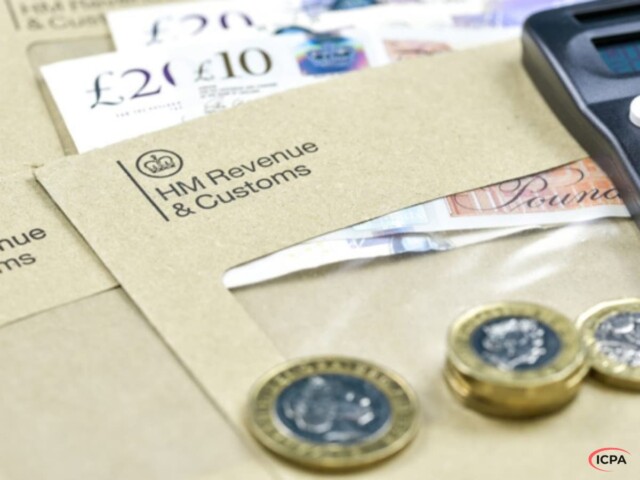Understanding the Spring Budget 2024
On March 6th, 2024, Chancellor Jeremy Hunt delivered his Spring Budget 2024. This annual event sets out how the government intends to tax, borrow, and spend, as well as details the progress made in delivering the previous year’s Autumn Statement.
For accountants, it’s vital to understand the details of the first UK Budget of 2024 so that the work you conduct for your clients – and your own practice accounts – are accurate and up-to-date. It’s important to understand any key financial changes, including updates to tax measures and any other financial measures that impact the work you do.
Here’s a quick overview of the Spring Budget 2024 – by accountants, for accountants. ICPA members have received a full summary of the applicable changes for accountants, which can be accessed in the Members’ Area of the ICPA website.
Overview of Key Financial Measures
Whether your clients are business owners, employed or self-employed – and no matter their business size and sector – the Spring Budget 2024 will impact them in a number of ways.
Changes have been made to personal taxes, business taxes and indirect taxes alike – and there are also various sector-specific changes affecting everything from holiday lettings to construction to film and other creative media. For accounting professionals, this requires taking a client-by-client approach to understanding the UK Budget 2024 changes and applying those that are relevant to your work.
As with any Budget changes, these changes can take time to get to grips with – especially if you’re working with clients in affected sectors for the first time. However, we’re here to help.
Analysing the Impact on Small Businesses
For your clients, the impact of the Spring Budget 2024 will be varied. Some may be able to avoid VAT registration for longer – reducing both their administrative and financial burdens. Some may have had to rush to get ready for changes to employee NICs. Some, in certain sectors, will have faced further changes (as described below), such as changes to property tax regimes and further allowances for the creative sectors.
As their accountant, your role is clear: to help your clients navigate these new challenges. For that to happen, you need to be fully aware of the Budget elements that apply to each of your individual clients, such as those detailed below.
Personal Tax Changes
Both the main personal allowance and the 40% threshold will remain at their 2022/23 levels until the end of the 2027/28 tax year. Where income rises from year to year, this represents a tax increase.
The High Income Child Benefit Charge (HICBC) will continue to be applicable to the higher earner in a couple where one receives Child Benefit and either of the two has an income over a set threshold. This threshold has risen from £50,000 to £60,000 in 2024/25, while the clawback income band has also risen from £10,000 to £20,000. This means that the entire benefit is lost when income reaches £80,000 (previously £60,000. From 2026, the HICBC may see further reforms.
In Scotland, the top rate of tax has increased from 47% to 48%, while a new “advanced” tax rate has also been introduced, applicable to those earning between £75,000 and £125,140. Lower tax rates remain unchanged.
The dividend allowance has been reduced from £1,000 to £500, increasing tax liabilities for those with dividend income above the threshold. The savings allowance remains unchanged, while the Chancellor also announced that the taxation system for non-domiciled individuals will be reformed from April 2025.
For some of your clients, personal tax changes may mean increased tax payments or the need to register for Self-Assessment for the first time.
Business Tax Updates
The main rate of Class 1 National Insurance Contributions has been cut to 8% from April 2024, while Class 4 contributions for the self-employed have been cut to 6%, a significant tax reduction for people in work. The Corporation Tax rates remain unchanged.
The minimum age for the National Living Wage has risen from 21 to 23.
NIC changes should mean that many of your clients see a decrease in their tax obligations in this sense.
Indirect Taxes Adjustments
For the first time since 2017, VAT thresholds have increased from £85,000 and £83,000 to £90,000 and £88,000 from April 2024. These levels will once again be frozen, but the duration of the freeze has not yet been specified. This suggests that fewer micro-businesses will need to be VAT-registered, potentially reducing the burden on some of your smaller clients.
While fuel duty and alcohol duty rates have been frozen, a new vaping products duty has been introduced. Landfill tax rates and air passenger duty have risen, while a consultation has been launched on the VAT treatment of private hire vehicles.
Other Financial Measures
On a more sector-specific note, favoured furnished holiday lettings (FHL) treatment will be abolished from April 2025. In the construction industry, the Construction Industry Scheme (CIS) has seen some changes, including the need for VAT obligations to grant gross payment status, bringing forward the first review of a GPS holder’s compliance from 12 months to 6 months, and digitalising applications for CIS registration.
The Chancellor announced in the UK Budget 2024 that full expensing would be extended to leased as well as purchased assets, when possible, while film tax reliefs have also been simplified.
Accountants must take into account sector-specific changes when handling client accounts to ensure accuracy and compliance.
Why Join ICPA?
Wading through new developments like the Spring Budget 2024 can be time-consuming. That’s why all of our members received a summary of the relevant changes for accountants, which they can read in the Members’ Area. They also have access to tax rates – which are updated as soon as the government makes changes – as part of the numerous documents and other assets we provide as reference material.
ICPA membership supports accountants facing new budget measures in a variety of other ways, too. It includes access to Tolley’s Tax Library (normally a huge expense when purchased on its own), as well as expert helplines covering tax and a range of other topics.
If ICPA membership sounds like it could suit you, take a look at our full list of member benefits here, or get in touch to learn more.
FAQs about Spring Budget 2024
How will the changes in the 2024 Budget impact payroll processing for accountants?
Changes to NICs and to Scottish tax allowances may mean that payroll processing must be changed.
How does the Spring Budget address issues related to self-employment?
Class 4 NICs have been cut from 8% to 6%, representing a significant reduction in the tax burden for the self-employed.
Are there changes to inheritance tax in the 2024 Budget?
The IHT nil rate band remains fixed at £325,000 until the end of 2027/28. However, certain rules have changed. Previously, the personal representatives of estates may have had to take out a commercial loan to pay IHT before they could obtain a grant of probate. Now, they can apply for a “grant on credit” from HMRC instead.
How will the Budget changes affect the construction sector?
The Construction Industry Scheme now requires VAT obligations to grant gross payment status. The first review of a GPS holder’s compliance has been brought forward from 12 months to 6 months, while applications for CIS registration have now been digitalised.
Get the latest news direct to your inbox
Sign up to our mailing list to receive weekly bulletins on all of the latest accounting news.
"*" indicates required fields






